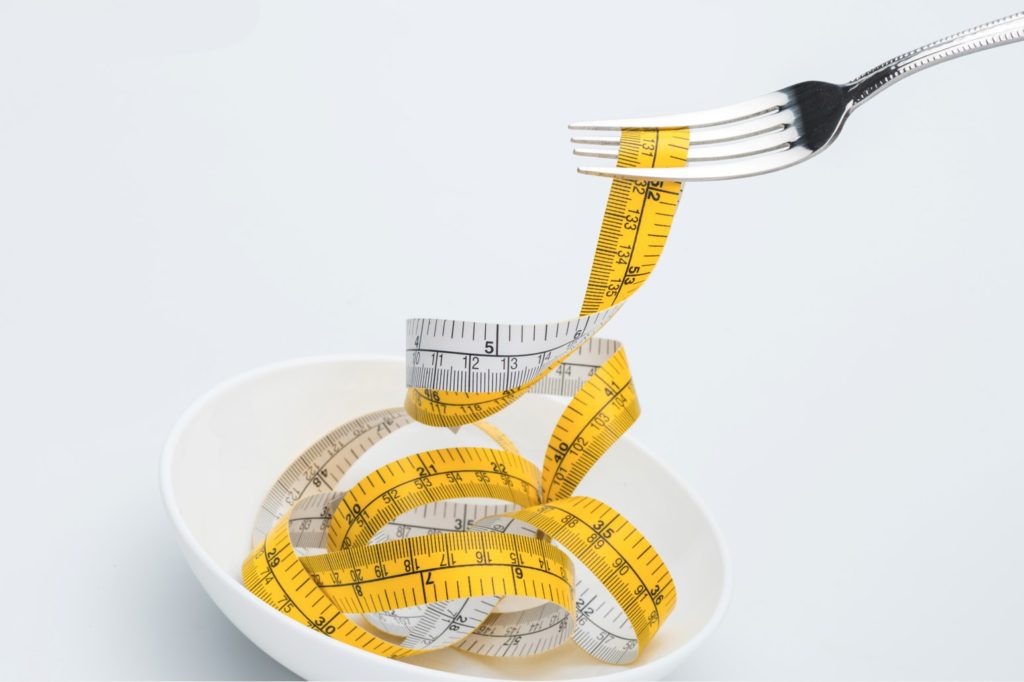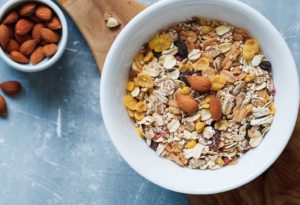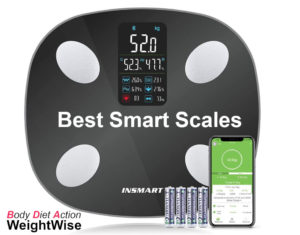In a world filled with quick fixes and fad diets, achieving sustainable weight loss can seem like a daunting task. However, by understanding the science behind long-term success and implementing proven strategies, shedding those unwanted pounds for good is possible.
In this comprehensive guide, we’ll share expert tips on how to make lifestyle changes that lead to permanent weight loss and healthier living.
Key Takeaways
- Quick fixes and fad diets are not sustainable for long-term weight loss. Incorporating lifestyle changes such as balanced nutrition and regular physical activity is key to achieving lasting results.
- Setting realistic goals and milestones can help prevent discouragement and promote motivation throughout the journey to sustainable weight loss success.
- Healthy habits such as mindful eating, portion control, regular exercise, adequate sleep, stress management, hydration, and nutrition are vital components of successful long-term weight loss.
- Seeking support from friends, family members, and healthcare providers or joining a weight-loss program can increase adherence rates whilst tracking progress is essential for staying accountable toward set goals.

Understanding The Importance Of Sustainable Weight Loss
Quick fixes and fad diets may seem appealing, but they are not sustainable for long-term weight loss; understanding the science behind them and setting realistic goals is crucial.
The Problem With Quick Fixes And Fad Diets
One of the biggest obstacles faced by individuals seeking to lose weight is the allure of quick fixes and fad diets. These temporary solutions often promise rapid weight loss in a short amount of time, making them highly appealing to those looking for a fast way to shed pounds.
However, research consistently shows that more than half of lost weight is regained within two years due to these unsustainable methods.
The primary issue with quick fixes and fad diets lies in their unsustainability. After initial success with rapid weight loss, most people struggle to maintain their new habits long-term as they feel deprived or overwhelmed by complicated and restrictive dietary rules.
Furthermore, drastic caloric reductions can lead the body into “starvation mode,” causing it to hold onto fat stores rather than use them for energy due to perceived scarcity.
In contrast, sustainable weight loss relies on modifying lifestyle behaviors through balanced nutrition and regular physical activity – changes that can be maintained indefinitely without jeopardizing overall well-being.
The Science Behind Sustainable Weight Loss
The science behind sustainable weight loss revolves around creating a calorie deficit while maintaining a nutritious and balanced diet.
One key aspect of shedding weight sustainably is understanding your body’s metabolic rate – how many calories it burns at rest. Metabolism plays a significant role in determining the ideal calorie intake for an individual seeking to lose weight steadily and maintain their desired size.
Another crucial component of sustainable weight loss lies in incorporating regular physical activity alongside dietary adjustments. Exercise not only burns calories but also improves cardiovascular health, strengthens muscles, and boosts mood – all essential factors when working towards long-term success with losing excess weight.
A study from the American Heart Association revealed that individuals who combine both dietary changes and increased physical activity are more successful at achieving sustained results compared to those relying solely on one method alone.
Setting Realistic Goals And Expectations
Embarking on a sustainable weight loss journey begins with setting realistic goals and expectations. Acknowledging that losing 20 kg sustainably may take months, rather than weeks, will help establish an achievable plan and prevent becoming discouraged.
Consider breaking down your overarching objective into smaller milestones to maintain motivation and measure progress more frequently. For example, aiming for a 1-2 pound (0.5-1 kilogram) reduction per week is both attainable and healthy according to healthcare providers.
Keep track of these incremental achievements using a food diary or weight journal alongside regular exercise routines.

Building Healthy Habits For Long-Term Success
Practice mindful eating by paying attention to your hunger cues, savoring each bite, and avoiding distractions like television or phones during meals.
Mindful Eating And Portion Control
Mindful eating and portion control are essential for sustainable weight loss. Mindful eating involves paying attention to what you’re eating, how it tastes, smells, and feels in your mouth, and when you feel full.
This technique can help prevent overeating by improving awareness of your body’s hunger and satiety signals.
One way to practice mindful eating is to start with small portions on a smaller plate instead of using large plates that may encourage overeating. Take time to chew slowly and savor each bite rather than rushing through meals or multitasking while eating.
Try taking breaks during meals as well to check in with yourself and assess whether you are still hungry or full.
Regular Exercise And Physical Activity
Regular exercise and physical activity are crucial for sustainable weight loss. Incorporating at least 30 minutes of moderate-intensity exercise into your daily routine can lead to significant improvements in body composition, metabolism, and cardiovascular health.
In addition to structured exercise sessions, increasing overall physical activity throughout the day is also important. Taking the stairs instead of the elevator, parking further away from the entrance, or going for a quick walk during lunch breaks can all add up to increased calorie burn and improved overall health.
Remember that consistency is key – start by setting achievable goals such as walking for 10-15 minutes after dinner every night and gradually build up from there.
Adequate Sleep And Stress Management
Getting enough sleep and managing stress are crucial components of sustainable weight loss. Lack of sleep can disrupt hormones that regulate appetite, leading to increased cravings for high-calorie foods and overeating.
Chronic stress can also trigger overeating as a coping mechanism, especially with comfort foods like pizza or ice cream.
In addition, studies have shown that lack of sleep can slow down metabolism, making it harder to lose weight and keep it off in the long term. On the other hand, getting adequate amounts of restful sleep can boost energy levels and improve mental clarity, making it easier to stay motivated by healthy eating habits and regular exercise.
Hydration And Nutrition
Proper hydration and nutrition play vital roles in sustainable weight loss. Drinking enough water is essential for bodily functions, including digestion and metabolism, which are key factors in weight management.
It’s recommended to drink at least 8-10 cups of water daily. Additionally, choosing nutrient-dense foods that are high in fiber, protein, and healthy fats can help keep you feeling full and satisfied while also providing necessary nutrients for overall health.
Incorporating lean protein sources such as chicken or fish, whole grains like brown rice or quinoa, and healthy fats from sources like avocados or nuts into meals can also aid in sustainable weight loss efforts.
Avoiding highly processed foods that are often high in sugar and unhealthy fats is crucial for promoting lasting success. Remembering that every meal counts towards achieving your goals can be helpful when making food choices throughout the day.

Expert Tips For Sustainable Weight Loss
Experts recommend seeking support from friends, family, and healthcare providers, keeping track of progress and staying accountable, adapting and adjusting as necessary, and overcoming common challenges.
Seeking Support From Friends, Family, And Healthcare Providers
Having a support system is crucial in sustainable weight loss. Here are some ways to get the support you need:
- Talk to your family and friends about your goals and ask for their support. They can help you stay accountable, motivate you, and provide emotional support.
- Join a weight loss group or program. This allows you to connect with others who are going through the same journey as you and have access to professional guidance.
- Consider working with a registered dietitian or a personal trainer. They can provide expert advice and guidance tailored to your specific needs and goals.
- Use online resources like forums, social media groups, or fitness apps for additional motivation and support.
Facts:
- Having social support is associated with better adherence to diet and exercise plans.
- People who participate in weight loss programs that include counseling or coaching have greater success in maintaining their weight loss long-term.
- Consulting with healthcare providers can help identify any underlying health conditions that may affect your weight loss journey.
Keeping Track Of Progress And Staying Accountable
Tracking progress and staying accountable is key to sustainable weight loss. Here are some tips to help you stay on track:
- Keep a food diary to monitor what you eat and identify areas for improvement.
- Use a fitness tracker or app to monitor your physical activity levels and set achievable goals.
- Find an accountability partner, such as a friend or family member, who can support and motivate you throughout your weight loss journey.
- Regularly measure your progress using tools like body measurements, photos, or weigh-ins to see how far you’ve come.
- Celebrate your successes along the way and reward yourself with non-food treats like a new workout outfit or massage.
Remember that sustainable weight loss is a journey, not a quick fix. By tracking your progress and staying accountable, you’ll be able to make lasting changes that will benefit your health for years to come.
Adapting And Adjusting As Necessary
Sustainable weight loss is not a one-size-fits-all approach. It’s important to remember that what works for one person may not work for another, and that’s okay. Adapting and adjusting your plan as necessary is key to long-term success.
One way to adapt is by trying different types of physical activities until you find something you enjoy. Maybe running isn’t for you, but yoga or dancing makes exercise more enjoyable and sustainable in the long run.
Also, if certain foods aren’t satisfying or causing digestive issues, don’t force yourself to eat them just because they’re considered “healthy”. Find alternatives that satisfy both your cravings and nutritional needs.
Overcoming Common Challenges
Losing weight and keeping it off can be challenging, but there are strategies to help you overcome common obstacles. Here are some tips:
- Identify your triggers: Be aware of what causes you to eat when you’re not hungry, such as stress or boredom. Find ways to manage these triggers without turning to food.
- Plan: Plan your meals and snacks so that you have healthy options available when hunger strikes. This can also help prevent impulse eating.
- Don’t skip meals: Skipping meals may lead to overeating later in the day. Try to eat regular meals and snacks throughout the day to keep your energy levels up.
- Keep healthy snacks on hand: Stock your home or office with healthy snacks like fruit, nuts, veggies, and hummus for when hunger strikes.
- Practice portion control: Use smaller plates, bowls, and cups to help control portions, and avoid eating straight from the bag or container.
- Find a weight loss buddy: Having someone else on the same journey can provide motivation and support along the way.
- Stay positive: Focus on progress rather than perfection, celebrate small victories along the way and don’t beat yourself up if you slip up occasionally.
Remember that sustainable weight loss requires patience, persistence, and commitment. With the right habits and mindset, however, achieving your weight loss goals is possible!
Nutrition And Diet For Sustainable Weight Loss
Eating a varied, colorful, and nutrient-dense diet is crucial for avoiding a weight loss plateau.
Eating Varied, Colorful, Nutrient-Dense Foods
One of the most important aspects of sustainable weight loss is eating a balanced and varied diet that is rich in nutrients. This means consuming plenty of fruits, vegetables, whole grains, lean proteins, and healthy fats.
By filling your plate with a rainbow of colors from different types of fruits and veggies you can ensure you are getting a variety of vitamins and minerals that your body needs for optimal health.
In addition to being nutrient-rich, these foods are also low in calories which promotes weight loss. Incorporating plant-based protein sources like beans or tofu into meals can also help increase satiety while reducing the amount of saturated fat consumed.
Research has shown that keeping track of your food intake through journaling or using apps like MyFitnessPal can lead to increased weight loss success as well as help people stay mindful about what they’re putting into their bodies daily.
Keeping A Food Diary
Keeping a food diary is one of the most effective ways to achieve sustainable weight loss. It helps you become more mindful of what and how much you eat, identify patterns and triggers for overeating or food cravings, and track your progress towards your goals.
A food diary can be as simple as a notebook where you jot down everything you eat and drink throughout the day, along with notes on the portion sizes, time of day, location, and emotional state surrounding each meal or snack.
For instance, studies have shown that people who keep a daily food diary lose twice as much weight as those who don’t keep records of their intake. Furthermore, tracking what you eat may help break unhealthy eating habits since keeping detailed records makes it harder to deny problematic behaviors like emotional or ‘binge’ eating.
We’ve written a full post on keeping a food diary which could be worth a read.
Filling Up On Healthy Food
To achieve sustainable weight loss, it’s important to focus on filling up with healthy and nutrient-dense foods. This means choosing whole grains, lean proteins, fruits, and vegetables over processed and high-calorie options.
One way to fill up on healthy food is by increasing your intake of non-starchy vegetables like broccoli, asparagus, spinach, and kale. These foods are low in calories but high in fiber which helps keep you feeling full for longer periods.
Additionally, incorporating lean proteins like chicken breast or fish into meals can also promote feelings of fullness without adding excessive calories.
Understanding Hunger And Fullness
Knowing how to properly recognize and respond to hunger and fullness signals is crucial for sustainable weight loss. Many people struggle with overeating simply because they don’t know when to stop or they ignore their body’s natural cues.
Hunger is the signal that tells us we need fuel, while fullness indicates that we have consumed enough calories. Paying attention to these signals can help prevent overeating and promote a healthier relationship with food.
It’s also important to note that not all hunger is created equal – sometimes we may think we’re hungry but are thirsty or dealing with emotions such as stress or boredom.

Exercise And Physical Activity For Sustainable Weight Loss
Regular physical activity is essential for sustainable weight loss as it increases metabolism and burns calories.
Importance Of Regular Exercise
Regular exercise is crucial for sustainable weight loss and overall health and well-being. It helps to burn calories, build lean muscle mass, and boost metabolism.
Finding activities you enjoy is key to making exercise a regular part of your routine. Whether it’s swimming, running, hiking, or dancing, incorporating movement into your life in a way that feels enjoyable will make it easier to stick with over the long term.
Additionally, setting achievable goals for your workouts can help keep you motivated and on track toward achieving sustainable weight loss. This may involve gradually increasing the duration or intensity of your workouts over time.
Finding Activities You Enjoy
Regular exercise is an essential component of sustainable weight loss. However, for many people, the idea of spending hours at the gym can be daunting and unappealing. The key to success is finding activities that you enjoy and incorporating them into your daily routine.
The important thing is to choose activities that fit your lifestyle and personality so that you look forward to them. If you prefer solitary workouts, try running or yoga.
On the other hand, if socializing motivates you more than working out alone does, join group fitness classes or take up team sports with friends. When physical activity becomes something fun instead of just another task on your list, it’s easier to stick with it over the long term.
Incorporating Movement Into Your Daily Routine
Regular physical activity is crucial for sustainable weight loss. Here are some ways to incorporate movement into your daily routine:
- Take the stairs instead of the elevator or escalator.
- Park farther away from your destination and walk the extra distance.
- Walk or bike to work if possible.
- Set a timer to get up and move every hour during office hours.
- Stand instead of sitting while on conference calls or watching TV.
- Use a standing desk or stability ball instead of a traditional chair at work or home.
- Join a fitness class or sports team with friends.
- Use household chores as an opportunity to get moving, such as cleaning, gardening, or carrying groceries.
Research shows that even small amounts of physical activity throughout the day can have significant health benefits. So, find ways to move more and make it part of your daily routine!

Mindful Eating And Portion Control
Practice mindful eating and portion control to avoid overeating and truly savor your food. Discover effective strategies for controlling portion sizes, managing cravings, and maintaining a healthy relationship with food.
Slowing Down And Savoring Your Food
Slowing down and savoring your food is an essential aspect of sustainable weight loss. When we eat slowly, we allow our bodies to register fullness, which helps us avoid overeating.
Additionally, when we savor our food, we tend to appreciate it more fully. This can lead to greater satisfaction with smaller portions and less desire for unhealthy snacks after meals.
One way to slow down while eating is by putting utensils down between bites or taking breaks in conversation. Another tip is to focus on the taste, texture, and aroma of each bite rather than mindlessly consuming it.
Controlling Portion Sizes
Controlling portion sizes is essential for sustainable weight loss, as it allows individuals to eat their favorite foods while still maintaining a healthy balance in their diet.
One helpful strategy is to use smaller plates and bowls when serving food. This gives the illusion of a full plate but with fewer calories consumed overall.
It’s also important to pay attention to serving sizes listed on nutrition labels and restaurant menus. These can vary greatly from what we may perceive as a “normal” amount of food.
For example, a single serving of pasta is often only ½ cup, which may be much smaller than what we typically consume.
Strategies For Eating Out And Social Events
Social events and eating out can be a major challenge for those trying to maintain a healthy, sustainable weight loss. Here are some strategies to help:
- Research the menu beforehand and plan your order: Before you go out, check online or call ahead to find healthy options. Plan what you will order and stick to it.
- Watch your portion sizes: Restaurant servings are often larger than necessary, so ask for a takeout container right away and put away half your meal before you start eating.
- Avoid fried food: Fried foods are high in calories and unhealthy fats. Instead, look for baked or grilled options.
- Be mindful of drinks: Liquid calories can add up quickly, so choose water or unsweetened beverages instead of sugary drinks.
- Don’t skip meals: Skipping meals before an event may lead to overeating later on. Eat a healthy meal or snack beforehand so that you’re not too hungry when you arrive.
- Slow down and savor your food: Take your time while eating, enjoy the flavors and textures, and listen to your body’s cues of hunger and fullness.
- Choose wisely at buffets: Buffets can be overwhelming with too many options, so survey all the offerings before filling up your plate with only the healthiest choices.
- Limit alcohol intake: Alcohol is high in calories, slows down metabolism, and impairs judgment leading to poor food choices.
Remember that sustainable weight loss doesn’t mean completely avoiding social events or eating out – it just requires planning and making healthier choices whenever possible!
The Benefits Of Sustainable Weight Loss
Sustainable weight loss has numerous benefits, including improved physical health and well-being, higher energy levels, and boosted self-esteem.
Improved Physical Health And Well-Being
Sustainable weight loss can have a significant positive impact on your physical health and overall well-being. Studies show that losing just 5-10% of your body weight can reduce the risk of developing chronic conditions such as diabetes, heart disease, and stroke.
Incorporating regular exercise along with healthy eating habits into your daily routine not only helps you lose weight sustainably but also improves cardiovascular health and muscle strength.
Making small changes like taking frequent walks or incorporating strength training exercises into your day can make a big difference in long-term success.
Higher Energy Levels And Productivity
Sustainable weight loss not only improves physical health but also boosts energy levels and productivity. When you shed excess pounds, your body uses less energy to carry out everyday activities, meaning you have more energy to devote to work or other enjoyable activities.
Additionally, losing weight can improve sleep quality, which in turn can lead to better focus and concentration during the day.
One key factor in maintaining higher energy levels is proper nutrition. A balanced diet rich in fruits, vegetables, whole grains, and lean protein sources has been linked with improved cognitive function and increased mental clarity.
It is important to note that reducing calorie intake too drastically or cutting out entire food groups may negatively impact the body’s ability to sustain higher levels of productivity over time.
Boosted Self-Esteem And Confidence
As you embark on a sustainable weight loss journey, it’s important to remember that the benefits extend beyond just physical health. With each pound lost and healthy habit developed, your self-esteem and confidence can soar.
Shedding excess weight can improve body image and make everyday activities easier to manage, which in turn boosts self-confidence.
Studies have shown that individuals who engage in regular exercise experience significant improvements in their mental health as well, including reduced anxiety and depression levels.
This positive mindset can lead to more success with long-term weight loss goals by reinforcing the belief that change is possible.
Conclusion
Achieving sustainable weight loss can be challenging, but it is possible. By incorporating healthy habits into your daily routine and seeking support from friends, family, and healthcare providers, you can set yourself up for long-term success.
Remember to focus on progress rather than perfection and be kind to yourself along the way. Through mindful eating, regular exercise, adequate sleep, stress management, hydration, and nutrition – you can achieve a healthy lifestyle that leads to sustained weight loss.
Don’t forget to celebrate your achievements without relying on food as a reward. If you need additional guidance or support in reaching your goals – don’t hesitate to consult with a doctor or dietitian.
FAQs:
What is sustainable weight loss?
Sustainable weight loss refers to losing excess body fat and maintaining a healthy weight over an extended period through healthy lifestyle habits such as regular exercise, balanced nutrition, and stress management, rather than short-term crash diets or extreme measures.
Why do most people struggle with long-term weight loss success?
Many individuals find it challenging to maintain their ideal body weight due to various factors ranging from genetics and hormonal imbalances to unhealthy eating patterns, sedentary lifestyles, and emotional triggers like stress or boredom that may lead them to turn toward food for comfort.
How can I lose weight sustainably without feeling deprived or overwhelmed?
To lose weight sustainably without feeling overwhelmed requires a personalized approach tailored to your unique needs, goals, and preferences. This might involve creating a balanced meal plan that includes nutrient-dense foods you enjoy in appropriate portions while incorporating practical ways of physical activity into your daily routine. Additionally – seek support from friends & family members who share similar aims at improving overall health together -and find tools such as apps like MyFitnessPal can help track progress & keep motivation high.
Can supplements aid in sustainable weight loss?
While there are several dietary supplements marketed for promoting sustained weight loss results by boosting metabolism or suppressing appetite; experts agree that these supplements should not substitute healthy lifestyle practices mentioned above (e.g., healthy eating & regular exercise), which are key ingredients required for sustaining one’s optimal body composition levels over time safely. Thus – consulting professionals before using any dietary supplement could yield insight into the best options available based on specific individual circumstances.














